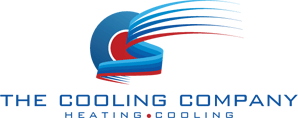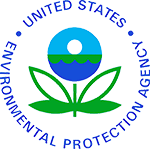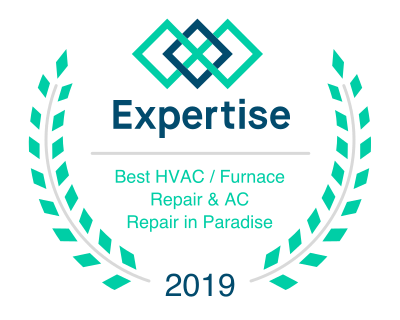Businesses and offices in Las Vegas experience brisk activity in the summer due to the huge influx of vacationers. However, sweltering temperatures can put a damper on commercial activities. If you’re running a store, office, or commercial facility, you may want to make sure that your HVAC system, inclusive of heating, ventilation, and air conditioning systems, is working properly to create a comfortable environment for your employees and customers. One way to do this is to perform certain maintenance tasks such as, inspection of the air conditioning unit, ductwork and filters, and necessary repairs before or at the beginning of summer. Make a schedule to routinely check on the efficiency of your HVAC systems, and ensure your ventilation and air conditioning are in peak condition throughout the hot season.
Importance of Summer HVAC Maintenance
With temperatures potentially rising above 110 degrees Fahrenheit, Las Vegas is one of the places in the country where it’s truly necessary to have a smooth-running HVAC system in the summer. For entrepreneurs, the extreme temperatures can have a substantial impact on their bottom lines. The following are a number of reasons why you should properly prepare your commercial HVAC unit, particularly air conditioning and ventilation, for summer:
Reduce Operational Costs
According to Energy Star, space cooling represents about 15% of energy consumption in commercial buildings in the United States. In a place with super-hot summers such as Las Vegas, the figure will likely be higher. Your commercial HVAC system, including your ductwork and filters, has to be in tip-top condition to handle the additional cooling load in the summer. If it’s poorly maintained, it’ll struggle to maintain efficiency and keep your office or store cool. The extra strain placed on the system can cause your utility bills to go up, and may also necessitate more frequent inspection and repairs. Additionally, an ill-maintained air-conditioner is more likely to experience mechanical failures, which can be costly to fix. An increase in energy and repair costs will lead to higher operational costs and eat into your profits.
Improve Employee Performance
A properly functioning commercial HVAC system can have a positive impact on your employee’s work performance. Your employees need a comfortable work environment in order to perform their work duties competently. If your air conditioner and ventilation systems fail to provide adequate cooling, your employees may have a harder time focusing on their work on a hot summer day. This can result in lower productivity, poorer work quality, and increased risk of errors. Keeping your commercial HVAC unit in good condition, including scheduling regular filter replacements and ductwork inspections, can help you get the best performance out of your employees.
It’s also important to know that a well-maintained HVAC system can improve indoor air quality. It does this by filtering the air that comes in from outside, maintaining the right humidity levels, and facilitating better air circulation. If you don’t service your air conditioner and HVAC systems regularly, they won’t be able to perform these functions effectively, causing your indoor air to become more polluted. Dirt, dust, pollen, bacteria, and harmful chemicals in the air can make you and your employees more vulnerable to a wide range of health problems, from runny noses to asthma attacks. As such, you may see an increase in the number of employees calling in sick.
Provide a Better Experience for Customers
If your commercial HVAC system isn’t operating smoothly, particularly the air conditioning and ventilation systems, you may see your business losing customers. Your customers are more likely to visit your store or building and stay longer if you’re able to provide a comfortable environment for shopping. Thus, regularly scheduling inspections and making necessary repairs can prove essential in preserving your customer base during the hot summer months.Ensuring a comfortable shopping environment can lead to an increase in sales, ultimately benefiting your business financially. Conversely, failing to provide a pleasant shopping experience can cause economic issues, negatively impacting your profitability and business reputation.
5 Useful Tips for Properly Maintaining Your Commercial HVAC System During Summer
Understanding the necessity of heating, AC, and overall HVAC maintenance can save you money in the long run when preparing your commercial air-conditioner for the imminent summer heat. The needs of HVAC system maintenance can vary significantly in terms of complexity. Some tasks can be managed with basic knowledge and equipment, while others, such as those requiring professional HVAC services, need the expertise of trained staff.
1. Inspect and Change the Air Filter
Air filters are an integral part of your commercial HVAC system, serving the crucial purpose of filtering and cleansing the air that enters your indoor space by trapping various particulates. Over time, the air filter can get clogged with dirt and debris, making it arduous for air to pass through it. If air filters are not regularly replaced, the additional strain on the system can lead to increased energy costs, system overheating, and potential failure – issues that will make your AC and heating systems work harder to maintain comfort.
Typically, changing the air filters is a relatively simple task that, depending on your system and its use, can be done by your own staff. Nonetheless, always remember that frequent inspections, at least once every three or four weeks, are essential to avoid clogged filters and maintain the system’s energy efficiency. Following the recommended manufacturer’s guidelines and instructions, or the Department of Energy’s advice, could help reduce your HVAC unit’s energy use by up to 15%.
2. Check the Thermostat
Prior to the start of the hot summer months, include checking your commercial HVAC system’s thermostat in your to-do list for proper functioning. A dysfunctional thermostat can cause a myriad of problems ranging from inadequate or uneven cooling to short-cycling, all of which would necessitate the assistance of HVAC services.
You can tell whether your thermostat is functioning properly by checking if there’s a match between its temperature setting and the actual room temperature. In the event of any discrepancies greater than one degree, consult with an HVAC professional to address the problem. If your thermostat is giving an accurate reading, make sure the settings have been optimized for both occupants’ comfort and energy savings.
3. Clean the Outdoor Condenser Unit
Lastly, cleaning the outdoor condenser unit is another crucial maintenance task to optimize your commercial HVAC system for summer. Typically located on the roof or attached to a wall outside your office or building, this unit plays a vital role in transferring heat from your indoor space to the outdoors. Ensuring its proper maintenance avoids any unnecessary stress on the system and preserves your air-conditioner’s ability to cool effectively.Neglecting the maintenance of your HVAC system may not only lead to breakdowns, but also result in higher utility bills and increased wear and tear on crucial system parts.
When conducting a job of ensuring the health of your HVAC system, it’s essential to make sure the area around your outdoor condenser unit is clear of structures or objects that may block airflow. A common and fairly simple example of this is removing all dirt and debris that might have accumulated in the area. There should be at least three feet of free space on each side of the unit and five feet of free space above it. This forms part of preventative measures needed to protect your heating and air conditioning system.
To ensure the best operation of a residential HVAC unit, one can clean the evaporator coils in the outdoor condenser personally. However, when dealing with a commercial air-conditioner, the situation is a bit more complex, and typically requires professional hvac service. Such a system can malfunction or become damaged due to the slightest errors, and certain tasks, particularly those involving opening up the equipment, should be left for professionals. Thus, it’s advisable to make an appointment with a seasoned HVAC technician to clean the evaporator coils.
4. Clean the Drip Pan and Condensate Line
When your HVAC system extracts warm air from your indoor space, it not only keeps tenants comfortable, but it also removes moisture. This moisture is drained out via the condensate line to ensure it doesn’t accumulate in your equipment and cause potential damage. Over time, there’s a risk of algae and mold growth in the drain line, leading to dreaded clogs. Left untreated, this issue can lead to dire consequences such as a damaged air-conditioner, property damage or even indoor air pollution.
One of the easiest ways to find out whether your commercial HVAC system’s condensate line is clogged is by checking the drip pan. First, turn off your air-conditioner and then locate the drip pan, commonly found below the indoor unit. Witnessing water in the drip pan is a telltale sign the condensate line might be clogged.
Cleaning the condensate line is a job that many people prefer delegating to an HVAC technician. If you take it upon yourself to do it, start by using a wet/dry vacuum cleaner to eliminate clogs from the drain line. After vacuuming, check the canister for remaining clogs. If it’s still clogged, there are other methods in place, such as using a flexible rubber tube to break down the obstruction.
5. Get Preventative Commercial HVAC Maintenance
For those of you who can’t spare the time to maintain your commercial air-conditioner, or wish for a comprehensive servicing of your equipment, it is advisable that you consider signing up for preventative commercial HVAC maintenance. Through this program, professionals will regularly, either on an annual or biannual basis, conduct maintenance visits. These specialists will perform a wide range of tasks to protect your system’s longevity and efficiency.
- Replacing the air filter
- Checking the duct system
- Cleaning the ignition switches
- Checking and cleaning the blower assembly
- Lubricating or replacing belts
- Cleaning the blower housing
- Cleaning the drip pan, condensate line, and evaporator coil
- Inspecting the heat exchanger
- Testing safety controls
- Inspecting the refrigerant level
- Checking and cleaning the condenser cabinet and coil
- Inspecting the compressor
- Checking and lubricating the fan motor and blades
- Checking the control box, switches, and wiring
A properly maintained commercial HVAC system can significantly ease the task of running your business, office, or building successfully. If you’re in search of a reputable HVAC contractor in Las Vegas, don’t hesitate to dial The Cooling Company at (702) 567-0707.












